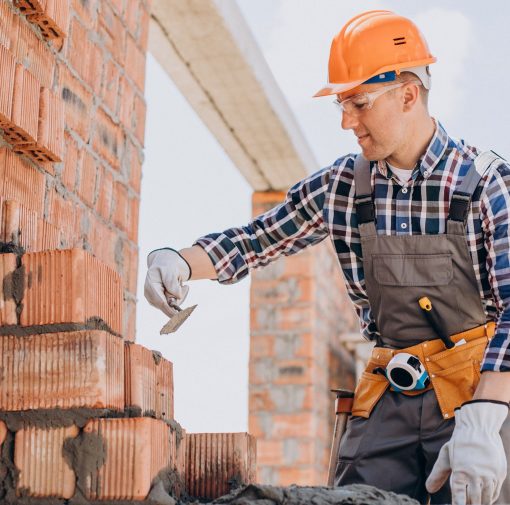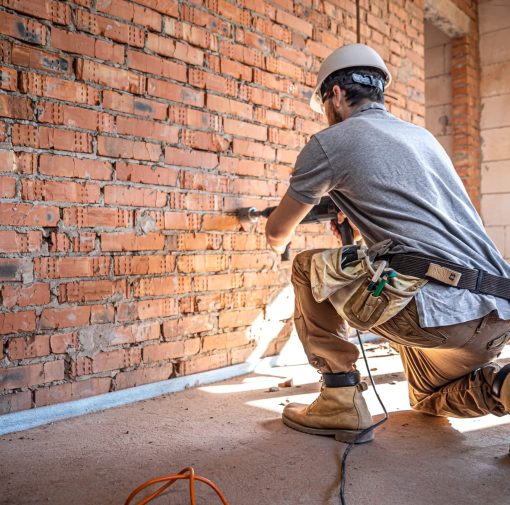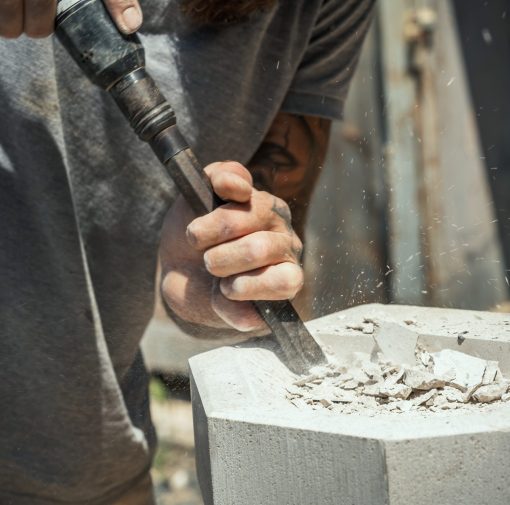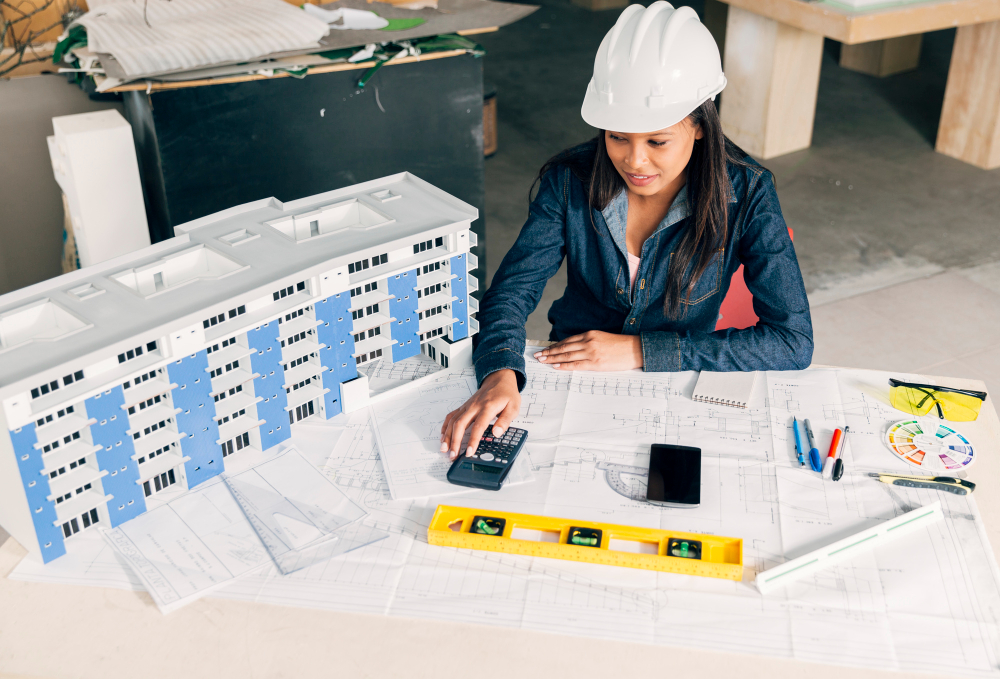
Is Concrete Masonry the Right Choice for Modern Construction?
Concrete masonry has been a cornerstone of building practices for decades, offering durability, affordability, and design versatility. Whether you’re constructing residential homes, commercial spaces, or large-scale infrastructure projects, understanding what concrete masonry is and how it benefits modern construction can guide better decision-making. This blog explores the advantages, types, sustainability aspects, and real-world applications of concrete masonry, helping you determine if it’s the right choice for your project.
For many years, concrete masonry has been a fundamental component of construction methods due to its cost, durability, and adaptability in terms of design. Knowing what concrete masonry is and how it helps modern construction can help you make better decisions whether building huge infrastructure projects, commercial buildings, or residential residences. This blog helps you decide whether concrete masonry is the best option for your project by examining its benefits, varieties, sustainability features, and practical uses.
What Is Concrete Masonry?



The term “concrete masonry” describes the construction of walls and other architectural features using concrete masonry units (CMUs), such as blocks, bricks, or structural components. Concrete masonry is preferred in construction because it offers strength, thermal mass, and fire resistance that are not found in conventional steel or wood framework. From single-story homes to tall high-rises, it is extensively utilized in both residential construction and commercial development.
The durability and cost-effectiveness of concrete masonry are frequently cited as reasons for its value. Because of these qualities, concrete masonry is a dependable option for projects where robustness and longevity are crucial considerations.
Benefits of Concrete Masonry in Construction

- Sturdiness and Power
The structural integrity of concrete masonry is well-established. CMUs are resilient to environmental challenges, large loads, and severe weather. Concrete masonry is more resistant to rot, pests, and natural deterioration than materials like timber, thus buildings will last for many years.
- Resistance to Fire
When building, safety is a top priority, and concrete masonry offers outstanding fire resistance. Because of its non-combustible qualities, which shield buildings from fire risks, it is a popular choice for apartment buildings, schools, and industrial facilities.
- Efficiency in Energy Use
The thermal mass of concrete masonry is one of its most important sustainability features. Through heat absorption, storage, and gradual release, this aids in controlling indoor temperatures. Because of this, concrete masonry buildings frequently use less energy for heating and cooling, which results in long-term cost benefits.
- Versatility in Design
Modern concrete masonry allows for a great deal of design variety and is not just restricted to grey, block-like structures. Architects can design visually appealing facades without sacrificing strength by utilizing a variety of finishes, colors, and textures.
- Economicalness
The long-term advantages of concrete masonry building surpass the initial cost, even if it may appear more expensive than wood framing. It is among the most economical building materials due to its longer lifespan, lower maintenance requirements, and increased energy efficiency.
Types of Concrete Masonry Units
There is no one-size-fits-all approach when it comes to concrete masonry. Depending on the objectives of the project, builders can select from a variety of CMU types:
- Concrete Blocks: Standard blocks used for load-bearing and non-load-bearing walls.
- Split-Faced Units: Provide a beautiful, textured appearance without sacrificing structural integrity.
- Architectural blocks are made to look good in institutional and commercial structures.
- CMUs can be either hollow or solid, depending on the insulation and structural requirements.
Developers and contractors can choose the best solution for their projects by being aware of these sorts.
Is Concrete Masonry Sustainable?
One of the main concerns in the construction sector nowadays is sustainability. A common query is, “Is concrete masonry environmentally friendly?” How it is used and sourced determines the answer.
Concrete masonry supports environmentally friendly construction in a number of ways:
- Durability lowers waste: Because buildings survive longer, fewer resources are required for replacements or repairs.
- Energy efficiency: Its thermal mass reduces climate control energy usage.
- Local sourcing: By manufacturing a large number of CMUs locally, transportation emissions are decreased.
- Recyclability: Waste from concrete masonry can frequently be crushed and utilized again as aggregate in new building.
Concrete masonry can help developers achieve environmental regulations when they strive for green building certifications like LEED.
Applications of Concrete Masonry
Because of its great adaptability, concrete masonry can be used for a variety of projects:
- Residential Homes: Offers long-lasting, energy-efficient homes to homeowners.
- Commercial Buildings: Provides robust and affordable options for shopping malls, offices, and warehouses.
- Public Infrastructure: Because of its durability and fire resistance, it is utilized in government buildings, hospitals, and schools.
- Industrial Sites: Perfect for manufacturing facilities and storage facilities that need sturdy materials.
Concrete masonry continues to demonstrate its versatility in contemporary construction in each of these uses.

Challenges of Concrete Masonry
Despite the many benefits of concrete masonry, it’s crucial to recognize certain possible drawbacks:
- Greater Starting Expenses: There may be more upfront costs than with wood framing.
- Labor-intensive: The need for skilled masons may raise labor expenses.
- Weight: Because concrete blocks are heavier, handling and shipment are more difficult.
However, the long-term maintenance and energy efficiency gains frequently outweigh these difficulties.
We are Certified Estimation company in USA










Why Choose Concrete Masonry for Your Project?
So, is concrete masonry the best option for your upcoming construction project? The answer is definitely yes if long-term value, sustainability, durability, and safety are among your top considerations. Concrete masonry offers a flexible option that satisfies structural and environmental requirements for everything from tiny residential dwellings to expansive commercial complexes.
Builders and developers continue to rely on this material because it combines strength with modern design flexibility, ensuring that projects are both useful and visually appealing.
Frequently Asked Questions (FAQs)
1. What is concrete masonry used for?
Concrete masonry is widely used in residential, commercial, and industrial construction because it offers strength, fire resistance, and thermal efficiency. It’s ideal for walls, partitions, and even decorative facades.
2. Is concrete masonry durable?
Yes, concrete masonry is extremely durable. When properly constructed, it can last for decades, resisting harsh weather, fire, and even pests like termites.
3. How is concrete masonry different from regular poured concrete?
Unlike poured concrete, which is cast on-site, concrete masonry typically involves pre-made blocks or units. This makes construction faster, more uniform, and often more cost-efficient.
4. Does concrete masonry provide good insulation?
Concrete masonry has strong thermal mass properties, which means it helps regulate indoor temperatures. With added insulation, it can significantly improve energy efficiency.
5. Is concrete masonry environmentally friendly?
Yes. Many concrete masonry units (CMUs) are made with recycled materials and require less maintenance over time, making them a sustainable choice for modern construction.
Conclusion: Building the Future with Concrete Masonry
More than just blocks and mortar, concrete masonry is a tried-and-true method for creating secure, long-lasting, and reasonably priced structures. In the contemporary building sector, it has earned its position as a preferred material by providing strength, energy efficiency, and design versatility.
Think about the long-term advantages of concrete masonry while deciding whether it is appropriate for your project. Concrete masonry is still a wise investment for architects, developers, and homeowners alike because of its durability, support for sustainable practices, and innovative design possibilities.
